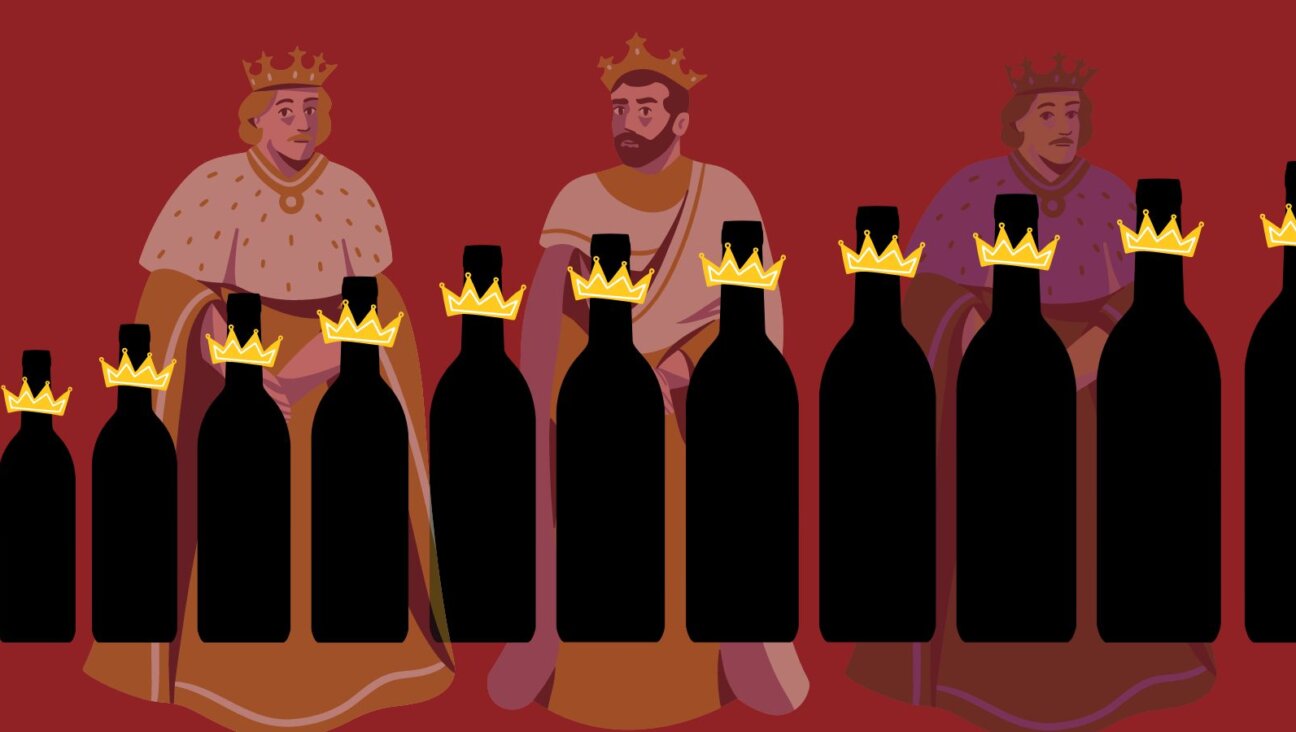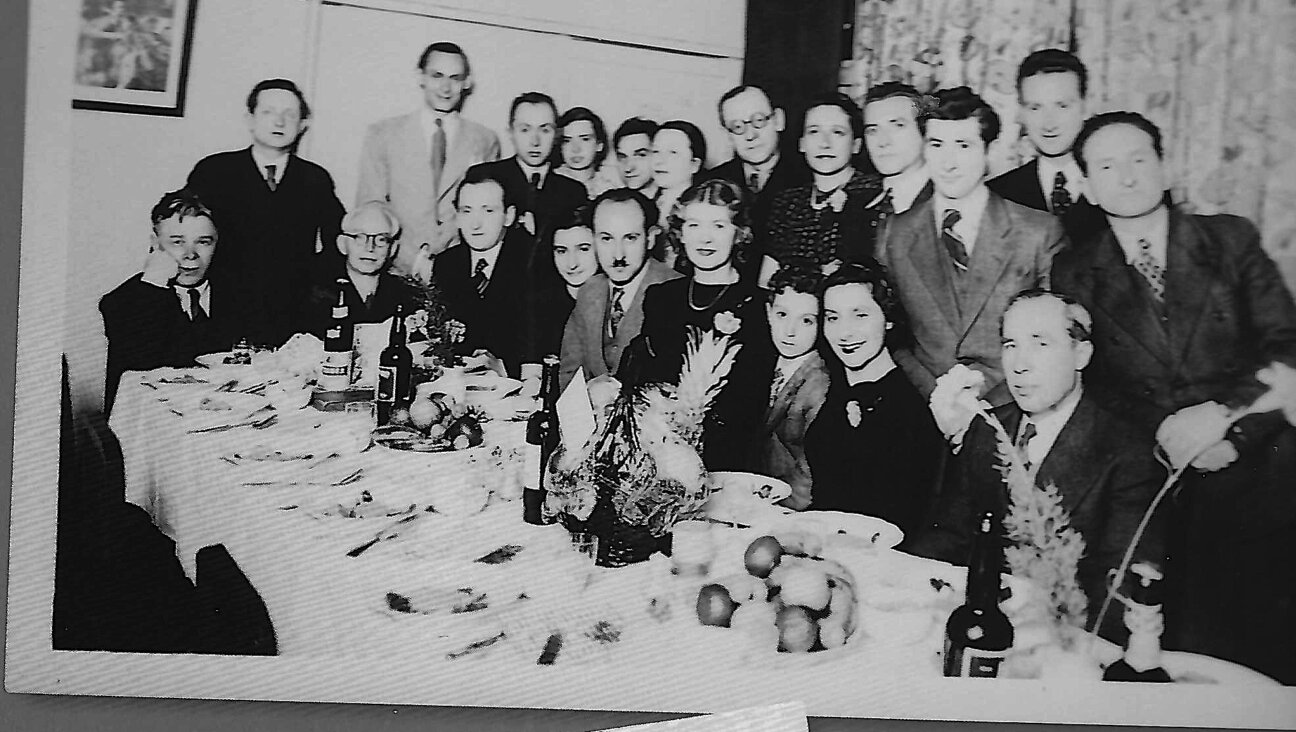As a Woman, Being Reborn

Ladin With History: ?Coming to Life? deals with birth into a life already half lived. Image by Courtesy Sheep Meadow Press
Coming To Life
By Joy Ladin
Sheep Meadow Press, 102 pages, $15.95
Medieval kabbalists wrote obsessively about language powers that brought the world into existence. Joy — previously known as Jay — Ladin is a contemporary poet whose words are also creating a world. In her case, though, the world in question is Joy’s own: living as an openly transgender person — spiritual seeker, sexual being, father of two and Jew.

Ladin With History: ?Coming to Life? deals with birth into a life already half lived. Image by Courtesy Sheep Meadow Press
In her new collection, “Coming to Life,” poetry becomes not merely a means of self-expression or artful contemplation, but an actual necessity. Writing means survival in a parallel universe that does not yet exist but is slowly — and often painfully — coming into existence like an unraveling poem.
In a piece called “Answer,” a dreamlike sense of displacement mingles with an awareness of a loss to envelop the imagery of creation and birth. Addressing a “you” that feels like a ghost or a doppelganger adds an eerie self-reflective touch — yet this is no fixed reflection, but rather one projected onto ever-changing waters. The reader is offered a glimpse into what the spiritual experience of being physically reborn might be like.
Where the waters of death empty
Into waters of life
The grass grows higher than your head.
The soil between your toes is damp.
You lost your shoes some ways back.
This is holy ground, the waters said
Or a voice you took
For the voice of waters
Pulling you under
Time and again. You were trying
To learn to walk
When you needed to learn to swim. You part
The grass that whispers
Through the waters that sing in your ears.
You can’t make out the question
So you answer Yes.
The pivotal image here is that of the “holy ground,” which refers, of course, to the first major encounter of Moses with the Divine. Unlike the story of the burning bush, however, in which directives are all too clear (“Take off your shoes,” instructs the ineffable voice, “Take my people”), this poem leaves the source of the voice and its intentions muddled. There’s an awareness of a misstep that happened somewhere along the way, “when you needed to learn to swim.” The disorientation comes to a climax in the final lines, where the narrating voice, without having heard the question, answers “Yes” — the capital “Y” implying the weight of a life-altering decision — in a tone that is half-instinct, half-gamble.
A few exceptions notwithstanding, “Coming to Life” does not dwell on the positive experience of finally finding a true self. Most of the time, the poems address the trauma and bitterness of living in the wrong body, or the complexity of living a life alongside a past that can never be truly left behind, but rather remains an unsolved haunting variable in the tangle of new identity. There are the repeated ruminations on the ruined — once clearly loving — marriage, and, above all, the relationship of the poet with her children, as represented in “Loving Him.”
The lost father smiles down
From the snapshot summer
Where his children can always find him,
A past they try to see as a future
In which he has shed
The terrible skin
No one who loved him
Can bear to call his, least of all his children
Whose universe hangs
On the nail of the man
Dissolving before their eyes
Into a woman
Calling their names
In a voice they could only stand
When they didn’t realize
It was speaking to them
As though in the loss
Of the man they loved
Love were traveling toward them.
A striking difference between this collection of Ladin’s work and her 2009 “Transmigration Poems” is the looseness — perhaps even shakiness — that has entered the rhythms and phrasing of the verse. In the previous collection, poems stood discreetly in a carefully sculpted, concise and calmly intoned manner that remained surprisingly steady even when dealing with matters in which screams may have been warranted. Here, however, control begins to tremble, as it does in “Loving Him.” A certain finesse of phrasing gives way to rollercoasterlike line breaks, as each enjambed line tumbles into freefall before the next line catches it. The winding sentence of the final stanzas jumbles through negations into a puzzling conclusion that becomes a maze of love, loss and speech.
The book is divided into a number of subsections, two of which diverge further yet from the voice found in Ladin’s earlier work. One section, “Democracy Is Burning,” is a sequence of poems consisting of assembled cut-ups from The New York Times’ September 11, 2001, issue. The book’s final section, “Coming to Life,” is also such a cut-up — of the now defunct magazine CosmoGirl. In both experiments, the author lets herself fall into newness of imagery, freshly borrowed vocabulary and disjointedness that are all typical and expected of such an experiment. If the “Democracy Is Burning” sequence is the author’s successful attempt to temporarily flee the otherwise constant focus of her work, her own identity, then the “Coming To Life” section is the moment of stumbling upon the same questions yet again, within new cadences and vocabulary choices. There, even the “found” words fall into familiar meanings: “It makes you desperate, turning / from a cartoon / into a real-life girl / with animated locks / and a gigantic puffy heart.”
Wounds provoke poetry more than poetry salves wounds: An inherent problem of literature is the fact that great writing often comes from a place of pain, and descending further into the pain intensifies the magnificence of the experience. As Ladin’s world comes into existence, it only pushes further into the intricacies of its own raw creation. Notwithstanding occasional glitter, a few quiet moments of happiness and even elation, it is desperation and loneliness that echo most consistently throughout the collection.
And in the space of this loneliness, on the “holy ground” of the nascent new world, comes the encounter with the divine. The poet’s body — loved, despised, transformed, caught in between — becomes a mere extension of the soul in the abyss of its own creation, disoriented and fraught with ghosts of past and future. The poem “God Is Beating,” records such a moment of purely disembodied religious experience. The frankly harsh title unexpectedly slides into the first line as if into a pit, where it grows with tension, and then leaps, released, into the final line. The imagery, bordering on a nightmarish vision, is nothing other than an intensely spiritual, breathtaking glance into the landscape of the poet’s inner life.
God is Beating
Wings in August leaves.
The leaves are dusty; wings are black;
Their beating a heart, terrified
Then free.
Jake Marmer writes about poetry and music for the Forward.

I hope you appreciated this article. Before you go, I’d like to ask you to please support the Forward’s award-winning journalism this Passover.
In this age of misinformation, our work is needed like never before. We report on the news that matters most to American Jews, driven by truth, not ideology.
At a time when newsrooms are closing or cutting back, the Forward has removed its paywall. That means for the first time in our 126-year history, Forward journalism is free to everyone, everywhere. With an ongoing war, rising antisemitism, and a flood of disinformation that may affect the upcoming election, we believe that free and open access to Jewish journalism is imperative.
Readers like you make it all possible. Right now, we’re in the middle of our Passover Pledge Drive and we need 500 people to step up and make a gift to sustain our trustworthy, independent journalism.
Make a gift of any size and become a Forward member today. You’ll support our mission to tell the American Jewish story fully and fairly.
— Rachel Fishman Feddersen, Publisher and CEO
Join our mission to tell the Jewish story fully and fairly.
Our Goal: 500 gifts during our Passover Pledge Drive!






















